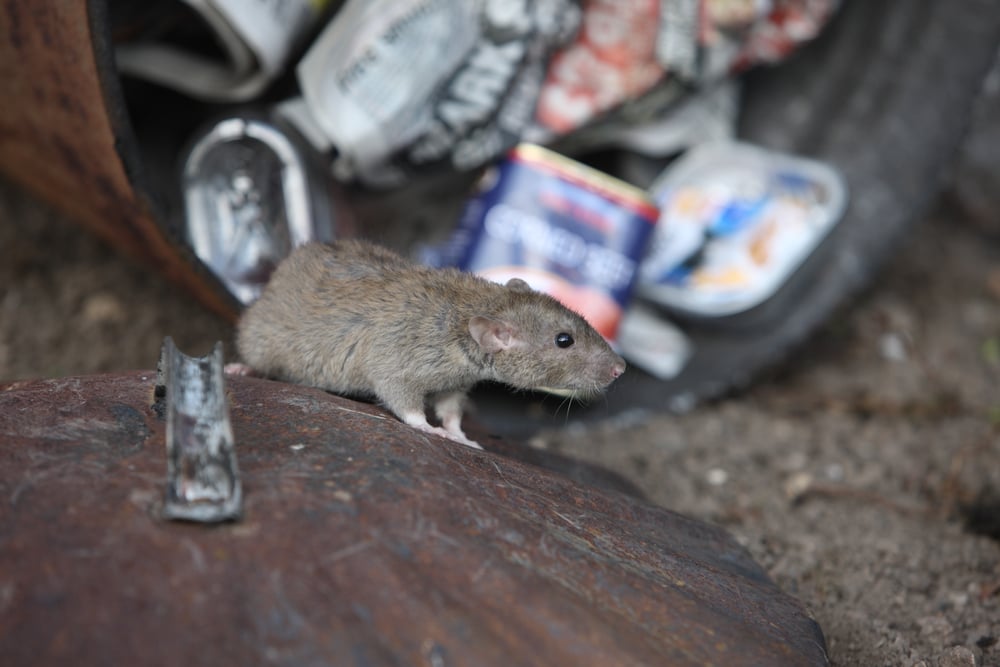Rodents are unwelcome guests, but they don’t know that. They’re kinda like your crazy Uncle Mort and mean Auntie Beatrice: you should never let them into your house in the first place and once you do you can’t wait to get rid of them. Rodents, such as rats and mice, can present multiple threats to your home and the people living in it. Rodents spoil food, transmit dangerous bacteria, and chew on electrical wires and chords, which can cause power cuts or even start a fire. These are all good reasons why rodents must be denied access to your home, or, if they’ve already taken up residence, how you can remove them quickly and effectively.
ID–ING THE RODENTS
Most species of mice and rats have adapted very successfully to living in close proximity to humans. They often nest in buildings, and can squeeze through very small spaces. Mice and rats pose a particular challenge for home owners due to their small size, their prolific breeding capacity, and their ability to thrive in an indoor environment.
The most prevalent type of rodent found in urban environments is the house mouse. They prefer to live in buildings close to human food supplies, but can also survive outside by digging burrows and underground chambers. They consume approximately a tenth of their body weight – up to a tenth of an ounce– on a daily basis. Deer mice are native to North America and are very similar to the house mouse. They generally nest in underground burrows but may sometimes invade buildings near fields and woodlands.
Rodents, especially Norway and roof rats, seek water sources inside structures. Rats consume 20-50 ml of water a day, which they find at dripping faucets, broken irrigation systems, bird baths, and ponds. Pet water bowls, clogged gutters, and over-watered gardens are also prime sources of liquid sustenance for these most unwelcome intruders.
STAYING RODENT–FREE
The first and most important step to ensure that your home remains rodent-free is by preventing them from gaining access in the first place. Rodents are opportunists that spend most of their lives looking for a way inside a structure in search of food, water, and shelter. Good sanitation practices are key to keeping rodents out of your home successfully. More than half of rodent infestations occur in the kitchen, the hub of activity in many homes and the location of the most food. The first line of defence is to try to prevent access as much as possible and remove food sources. Since house mice in particular generally live indoors, removing their reason for being there (mainly food) will go a long way towards reducing their numbers. Keep counters clean, eliminate clutter, and make sure to collect and empty garbage, trash, and garden debris frequently.
To prevent rodent access, seal any cracks and holes around your home – screen doors, windows, pipes, etc. Since roof rats are adept climbers, trim shrubs and tree limbs close to your home to deny them access to your roof. Cut the grass regularly, rake up leaves, and pick up debris piles in the yard where rodents like to hide. Replace loose mortar around the basement foundation and windows. Store firewood away from your home and off the ground. Keep your home secure and you'll keep the rodents away.
RODENT REMOVAL
Many types of rodent repellents are available to help homeowners get rid of mice or rats. Rodent poisons come in pellets that attract rats and mice to eat them. These poisons can be strategically placed to areas where rats are suspected to roam. If you are uncomfortable with the idea of sprinkling your home with poison, you may consider natural repellents, which promote safer methods of repelling rodents. Other non-toxic rodent repellents are mechanical traps and sticky pads. These are placed in common areas where rodents lurk and can be secured with a lure to attract them. The traps should be checked at least every other day because trapped mice or rats can rot and emit foul odour.
Rodents are a pest. In addition to spoiling food and transmitting dangerous bacteria, including salmonella and E. coli, rodents also can pose a significant threat to the structural integrity of your home.
To ensure your home remains rodent-free BugMaster offers an inclusive baiting and monitoring system, which allows us to monitor your bait stations periodically. For larger infestations, a combination of bait stations and spring traps are used. Both successful methods will ensure you remain free of field mice, house mice, deer mice, roof rats, Norway rats, and sewer rats. Contact us today if you need us to remove something crawling or scurrying around your home (children don’t count; you have to keep them).



